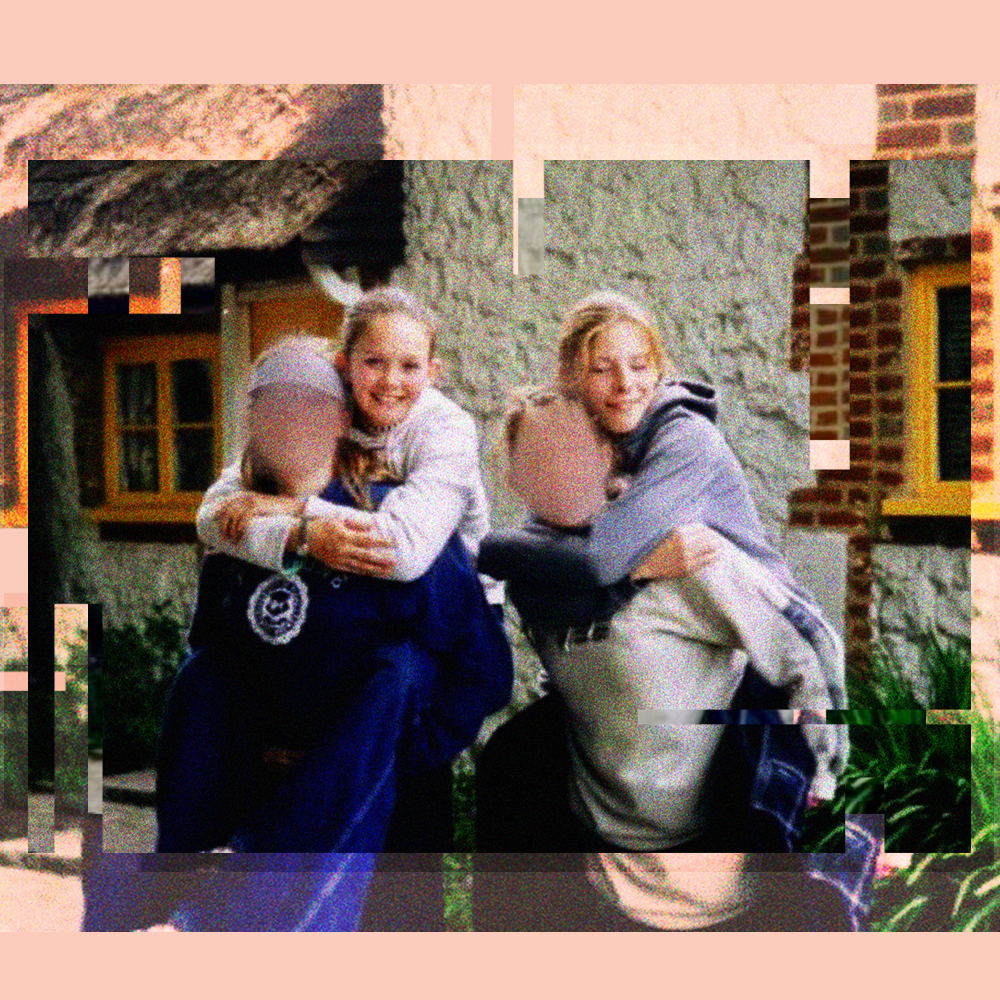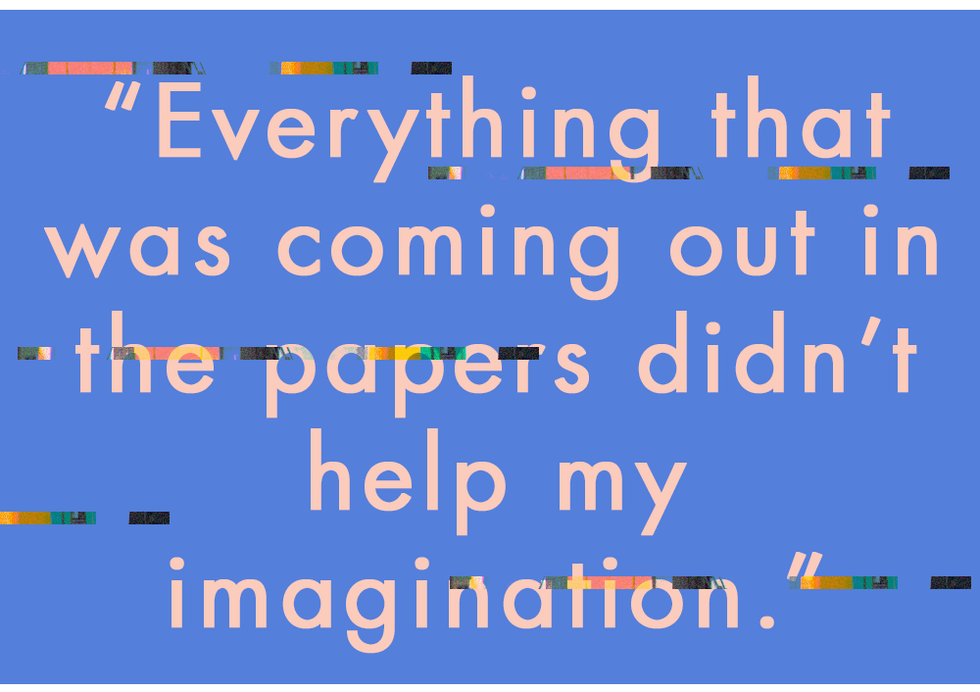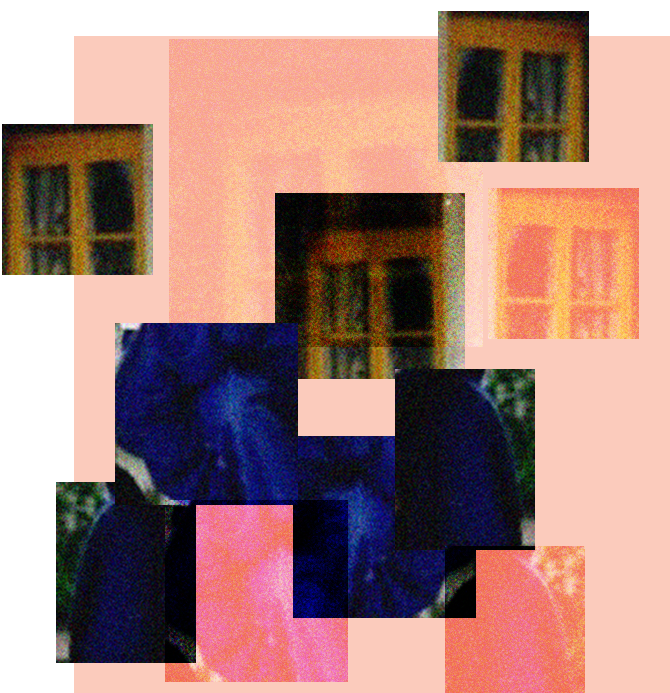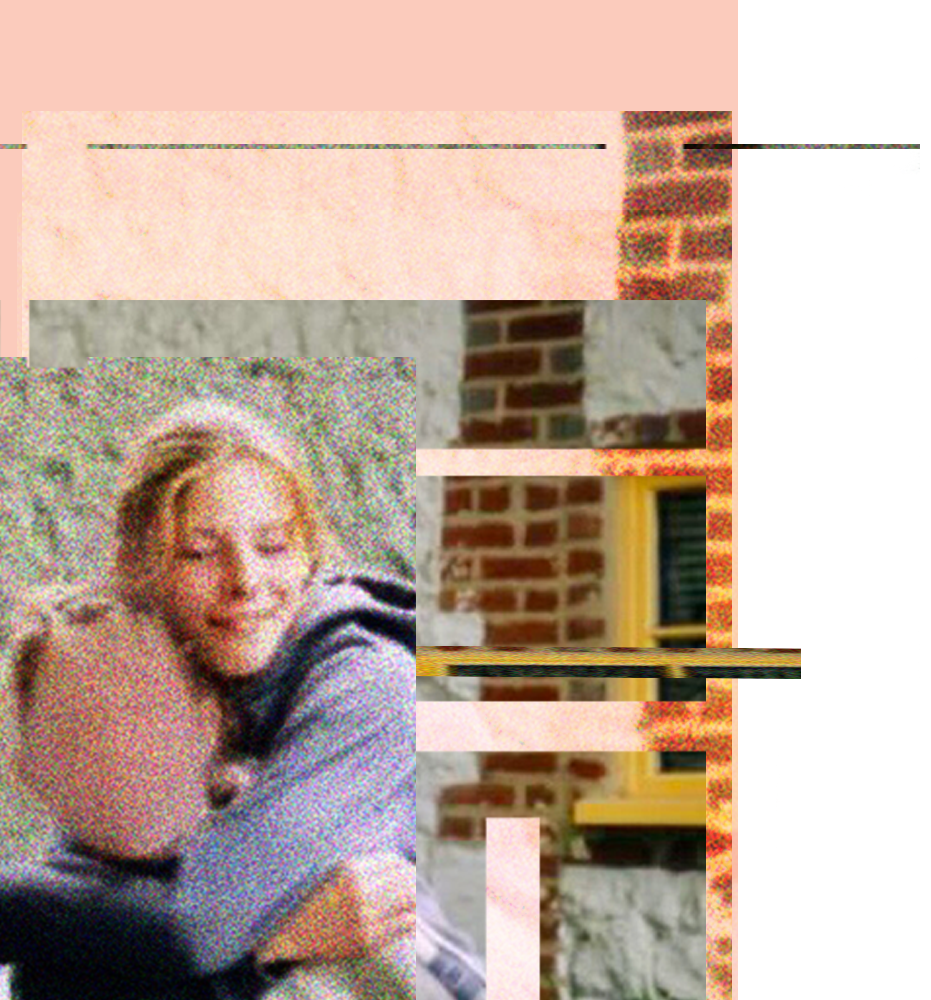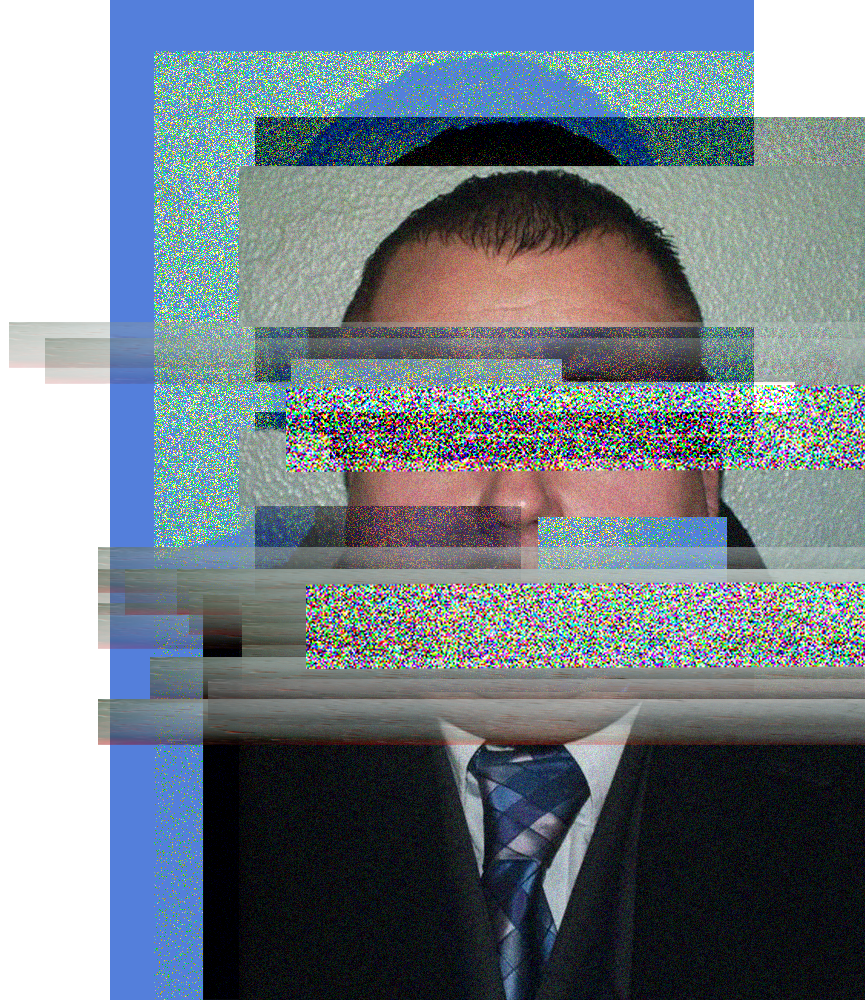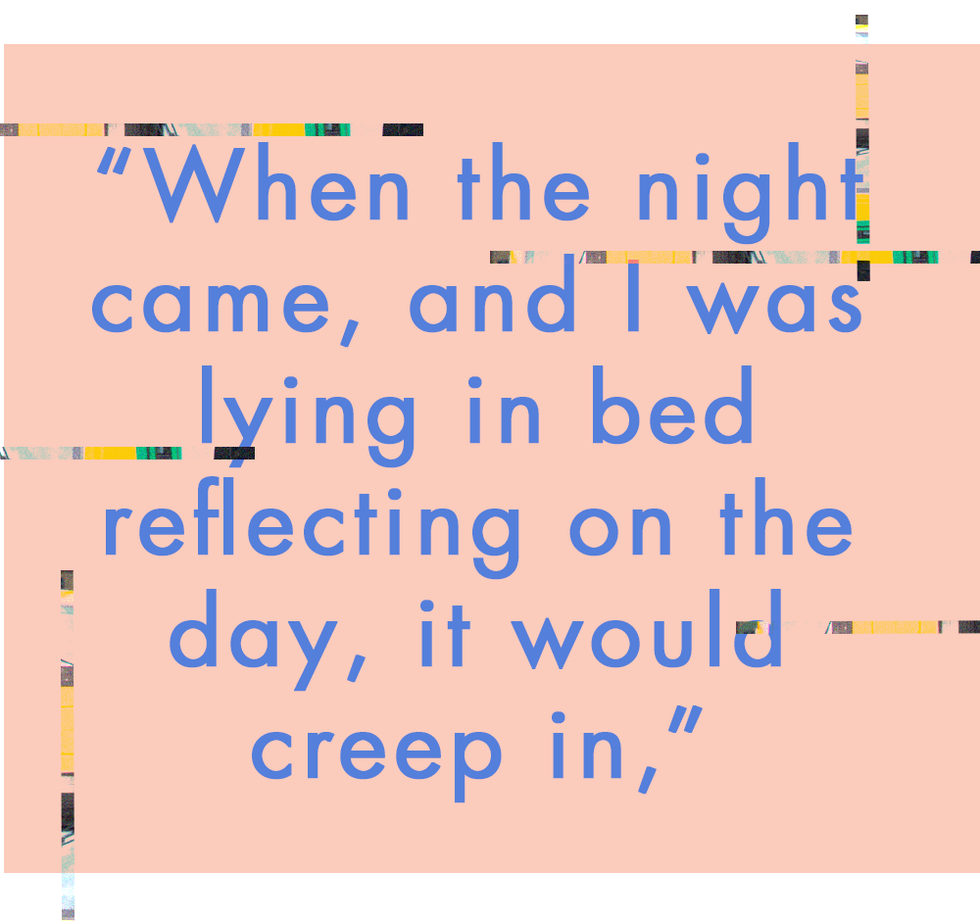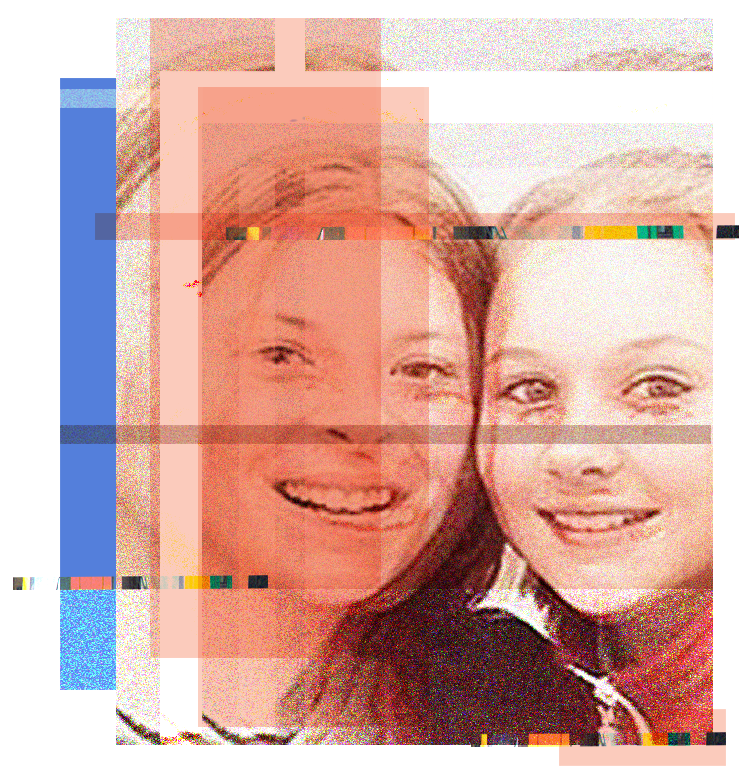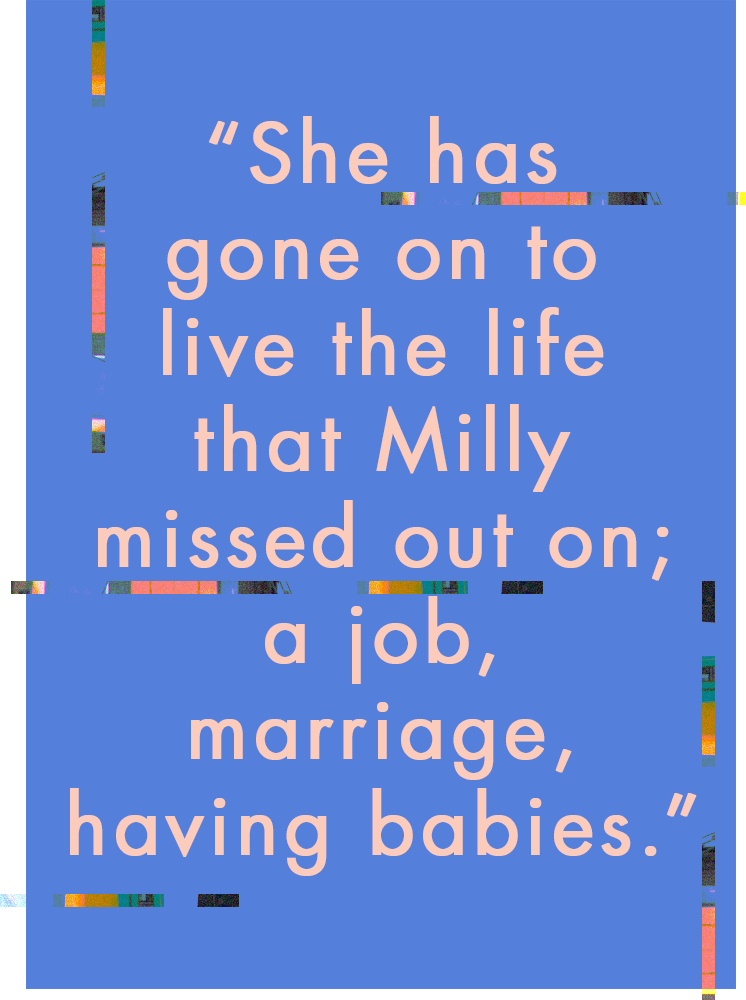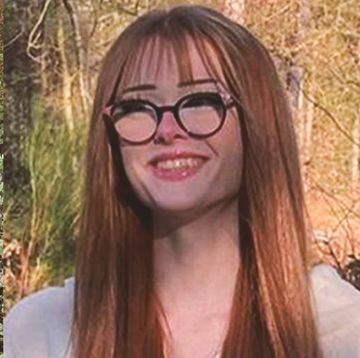Some news stories really stick with you. Stories like the disappearance of teenager Milly Dowler. In 2002, when a 13-year-old girl was snatched and later murdered as she innocently made her way home from school, it left a nation in shock. Maybe it was the fact the kidnap took place in well-to-do Surrey that drew widespread attention; maybe it was the fact that Milly was still wearing her school uniform when she was taken. Whatever it was that resonated with so many, Milly and her family quickly became the subject of news stories, documentaries and conversations, which continued as the case tragically unfolded over the following months and years.
But how would it feel to find yourself, involuntarily, in the epicentre of such a devastating situation? How would it feel if the nightmare splashed across every front page was your real life? How would it feel if the missing girl on the news was your very best friend? One person knows.
For 13-year-old Hannah MacDonald, March 21, 2002 was just another ordinary Thursday. She went to school, as usual, and spent much of the day with her best friend Milly.
"We had become inseparable after a school trip to Germany the year before. Our sisters were the same age, at the same school, so we were in each other’s pockets," Hannah, now 31, tells Cosmopolitan.
"Milly just fitted in to our family life. It was like having another sister - the same age as me, going through all the same experiences as me. Bullies, puberty, school, all of that was happening together. I’d never had a friendship like it before."
That Thursday afternoon, Milly and Hannah had plans to stay late after school to finish some art homework. Milly’s mum, who worked at the school, was supposed to give her a lift home. But all that changed when Hannah was asked to play in a school hockey match. "We did our art homework at lunchtime instead, so Milly got the train home," Hannah recalls.
The late change in plan would tragically alter the course of Milly - and so many others' - lives forever, causing Hannah unrelenting guilt that would haunt her for years to come.
After school, Milly – whose real name was Amanda – got off the train a stop early so she could get chips with friends. The walk home from Walton-on-Thames station wasn’t much further than her usual stop, Hersham, and the teenager phoned her dad shortly before leaving to say she’d be home in half an hour.
But half an hour passed, then an hour, then two, and Milly still hadn’t turned up.
The first Hannah heard of Milly’s uncharacteristic disappearance was a panicked phone call from her friend’s mum, in the car on the way to Guides. "Has Milly gone back to yours and not told us?" Sally Dowler desperately quizzed. Hannah couldn’t help. She hadn’t seen Milly since they’d said an everyday goodbye at the school gates a few hours earlier.
When Hannah’s mum picked her up early from Guides, she knew it was bad news. Later, the way her dad - a police officer of 25 years - spoke about Milly confirmed her fears that something serious had happened.
"Everybody was frantically trying to call her mobile, leaving voicemails and sending text messages," says Hannah. "She wasn’t the type of girl to run away or just go off with anybody. I knew that 100%, with every inch of my being."
The next day at school, there was still no Milly. But the media turned up in droves, waiting outside to speak to pupils and teachers. It felt frantic. “Even pupils who didn’t know Milly were leaving the school crying; the whole process of the press being on the school green waiting for us to come out was difficult. They were in our faces; we were in the public eye.
"I guess it was just abnormal for a young girl like Milly to go missing," reasons Hannah. "It was surreal. Like being in a film or a TV programme.
"It didn’t feel real."
As the next few crucial days passed, and still no-one had heard from Milly, fears grew deeper. The police investigation intensified, and the focus naturally began to shift towards Hannah. "My computer was taken, as well as my phone and a little friendship book I had with Milly. It was all taken as evidence so they could thoroughly check that I wasn’t hiding anything.
"At the time, everyone was just going through the motions of whatever the police needed; anything that would help the enquiry. But looking back on it, it was quite invasive [being] a 13-year-old having your computer taken and all your stuff rifled through in your bedroom," Hannah reflects.
Despite investigators’ best efforts, the police weren’t able to determine where Milly was – and they wouldn’t for a further six months. During that time, with no information, a young Hannah’s imagination began to run wild.
"There were no leads, but you’d get people who clearly had mental health issues contacting the police to say 'I know what’s happened to Milly'. They'd say, 'I’m psychic and she’s run away', or 'She’s run off with a strange man'.
"[Milly and I] told each other absolutely everything. Deep down I knew she hadn’t voluntarily gone anywhere with anyone, but I still thought about all the different avenues. Whether she had run off, or if she’d been abducted into a sex ring; those different types of things," Hannah tells Cosmopolitan. "Everything that was coming out in the papers didn’t help my imagination."
At a loss of knowledge about Milly’s fate, Hannah’s parents helped her to manage her scary thoughts, preventing her mind from spiralling into dark places.
"[I began to realise], until you have some facts or you have some leads, you can’t think that something has happened. I started visualising myself in a lobby with a load of doors in front of me, each representing all of the different scenarios. All the doors were open but I didn’t need to walk through any of them yet. I was in that lobby for quite a long time; six months just sitting in that lobby, watching the doors."
It was this process that allowed Hannah to compartmentalise all her fears about Milly, and try to get on with her normal life. With no answers, it was the only way she could carry on.
"I couldn’t really comprehend what was happening, and being that age, it was difficult to know how to express my emotions," Hannah remembers. “[So] I focussed on all the things that were in my control. I couldn’t control what the police were doing, I couldn’t control what had happened to Milly, but I could control what I did at school, and my grades."
While it was 'carry on as normal' in some aspects of her life, Hannah’s existing friendships suffered in the wake of her Milly’s disappearance. She began to distance herself from the group of friends she and Milly had been a part of previously.
"Friendships became quite fractured, because everybody wanted to be involved and know everything about it. I made a group of new friends, people in the year above me, and I had friends out of school."
On the morning of September 18, 2002, almost six months to the day since Milly vanished, mushroom pickers were out foraging in Yately Heath Woods, Hampshire, when they stumbled upon something. In among the woodland, 25 miles from Milly’s home in Surrey, the strangers spotted unclothed human remains. Forensics later confirmed they belonged to Milly, identifying the teenager using her dental records.
Hannah was devastated. "The hope had gone, of Milly being found alive," she remembers.
The news, life shattering as it was for Milly’s family and those who loved her, also came with a renewed focus for the investigation. "It allowed us to think: right, now we need to find who’s done this. She’s ended up naked in a wood on her own, she didn’t do that by herself. It helped steer the investigation a lot more," says Hannah.
In March 2003, a year after Milly’s death, still no culprit had been found. The police offered a £50,000 reward for any information that led them to her killer, but it wasn’t until seven years after – in March 2010 – that Milly’s murderer was finally identified.
During that time, Hannah found herself in the dangerous pattern of bottling things up. The ‘compartmentalising’ trick she had learned as a young teen to deal with the trauma of losing her best friend had intensified, and she became "a master at suppressing every emotion". When her dog passed away, a pet that had been with her family throughout her whole life, "I didn’t even cry".
Closing off emotionally had become a form of self-preservation for Hannah, shielding herself from the guilt she felt about changing her plans at the last minute and leaving Milly.
"I always felt guilty about playing in that sports match, because it would have meant Milly wouldn’t have been in the wrong place at the wrong time," says Hannah. "But there were so many what ifs."
In 2008, a former bouncer named Levi Bellfield was sentenced to life imprisonment for the murders of young women Marsha McDonnell and Amélie Delagrange, and for the attempted murder of Kate Sheedy. Bellfield, who lived in a flat in Walton-on-Thames at the time Milly Dowler went missing, had previously been interviewed police in relation with the teen’s disappearance, but it was only after his double murder conviction that police began to consider him their prime suspect.
Being in the dark about what happened to Milly had taken its toll on Milly’s family. "Imagine not knowing how your daughter died or where or when or by whose hand. Imagine how we as a family live," Milly’s father, Bob Dowler, said in an appeal for information at the time. Having remained close to them, Hannah shared their pain.
As it turned out, they wouldn’t have to wait too much longer to find out who was responsible for the death of their child.
In 2010, police announced they were charging Levi Bellfield for the murder of Milly Dowler. At the trial a year later, Bellfield’s former partner, Emma Mills, gave evidence to say he had gone "missing" on the day of Milly's disappearance. Hannah also served as a witness in court. She went back to work the next day, continuing to block out the emotionally draining process she was going through.
Days later, the jury unanimously agreed on a verdict. Levi Bellfield was found guilty of the abduction and murder of 13-year-old Milly Dowler, and it had taken nine long years to get there. As the judge delivered another life sentence, plus 12 years for the charge of kidnap, he described Bellfield as a "cruel and pitiless killer".
"He robbed [Milly] of her promising life. He robbed her family and friends of the joy of seeing her grow up, like her school friends who have given evidence in this court, into self-confident, articulate and admirable young woman," said the judge.
For Hannah, after Bellfield’s conviction, things carried on just as ‘normally’ as they had done for the past nine years. That was, until Levi Bellfield spoke out for the first time about Milly, and her grief finally unravelled.
It was 2015, and Hannah was getting married to the man she’d been with since university. The ceremony was taking place in Spain, and Milly’s sister, Gemma, was going to be a bridesmaid. Milly’s parents, Sally and Bob, were also due to attend as guests.
"[The Dowlers] have been so incredibly kind to me," says Hannah. "To think that I was the same age as Milly, and they’ve had to watch everything I’ve gone through; every time another birthday goes past, a Christmas, learning to drive, passing my GCSEs, getting my A-levels, going to university, getting married, having a baby. All those different events. Every time they must think, Milly would have been doing the same. But they don’t shut me out. They have always stayed in contact, even now."
A couple of weeks before the big day, Hannah received a phone call from her mum. "The Dowlers won’t be coming to your wedding," she told her. Hannah’s mum didn’t divulge many further details, and the bride-to-be took this as a sign she probably shouldn’t ask any more questions until after the wedding, when she’d have the headspace to take on whatever the latest development was.
Levi Bellfield had finally confessed to murdering Milly, and had shared unthinkable details about what happened in the schoolgirl’s final hours. It was shattering for Milly’s family.
There’s no way of knowing if Bellfield’s version of events were the truth; it may have been just another form of terror for the Dowlers to deal with. Hannah knew this, but still, it affected her in ways she couldn’t have imagined. This was the one thing Hannah couldn’t compartmentalise. Despite having practiced the art of boxing away the grief and trauma surrounding Milly’s death for so many years, this was a bump in the road even she couldn’t overcome.
Hannah became unable to sleep. "When the night came, and I was lying in bed reflecting on the day, it would creep in," Hannah admits. Thoughts, unrelenting thoughts, bombarded her; the picture of Bellfield’s face froze in her mind; images of his twisted descriptions tormented her over and over again.
Insomnia gripped, and Hannah became angry; snapping at family and colleagues who didn’t deserve it. Intimacy with her husband suffered. "I wasn’t myself," she admits.
One night, Hannah’s husband awoke to find her sitting bolt upright in bed, making lists. They weren’t lists about anything in particular, just meaningless words on a page – anything to distract her brain from the unyielding darkness that had seeped in. Grief works in funny ways. You can think you have it under control – but there you are, 13 years later, awake in the middle of the night, paralysed by its power.
"You need to get help. You need to see someone," Hannah’s husband lovingly encouraged. She knew he was right. "I can’t live like this," Hannah thought.
Days later, Hannah reached out to the employee assistance programme at Bupa, where she worked, feeling anxious at the prospect of opening up her innermost feelings. She was offered face-to-face counselling and, after several sessions, found it to be "the best decision [she] ever made. It was the first time I was really able to open up about how I was feeling."
Hannah was finally able to work through the guilt she’d buried deep. She could at last break down the protective shell she’d subconsciously constructed to shield her from the anguish of Milly’s fate.
"When I worked through it, I couldn’t understand why I had left myself in a state of suppression for 13 years. Why I had allowed it to reach boiling point. How had I let it take so much control over my life when I’d tried so hard not to let it?
"I’d got in to such a routine of accepting that the scenarios I was given were normal," says Hannah, "I didn’t realise how abnormal they were."
Hannah will never forget her best friend. She has gone on to live the life that Milly missed out on; a job, marriage, having babies.
"Even though she’s been gone for so much longer than I knew her, I’ve held on to her," Hannah reflects. And now, with a newfound ability to talk about how she feels, Hannah is making sure she doesn’t forget about herself, either.
If you are struggling with grief or any other aspects of your mental health, call the Samaritans helpline at any time 24 hours a day, 7 days a week, on 116 123.
Follow Cat on Twitter.

Cat is Cosmopolitan UK's features editor covering women's issues, health and current affairs. news, features and health. The route to her heart is a simple combination of pasta and cheese (somewhat ironic considering the whole health writing thing), and she finds it difficult to commit to TV series so currently has about 14 different ones on the go.
